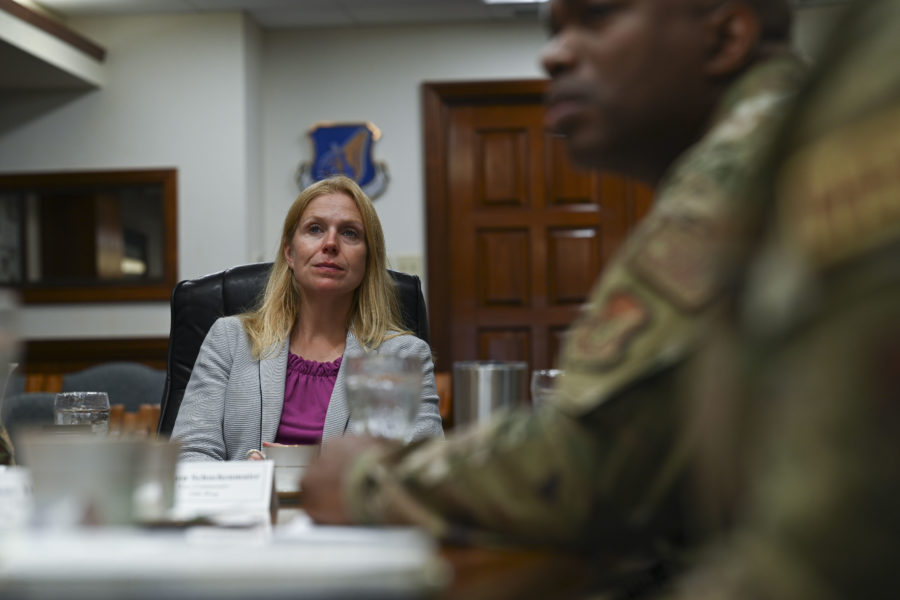The Department of Air Force’s chief information officer Lauren Knausenberger will depart the Air Force in June, the Air Force said Feb. 23. Knausenberger joined the Air Force as Chief Transformation Officer in 2017, and had been CIO since August 2020.
The Air Force aims to identify a successor before Knausenberger leaves, said Air Force spokeswoman Ann Stefanek.
Knausenberger’s departure signals a clean sweep of departing military department CIOs: In January, Army CIO Raj Iyer said he was departing after more than two years, and the Department of the Navy’s CIO Aaron Weis is leaving his post after more than three years next month.
As CIO, Knausenberger oversaw an information technology portfolio valued at around $17 billion.
Since arriving in the department from industry, Knausenberger has been an agent of change and modernization, pushing to update the Department of the Air Force’s IT infrastructure by accelerating a push into the cloud, upgrading cybersecurity, and expanding the use of artificial intelligence. Those efforts mirrored trends throughout the Department of Defense and align with Operational Imperatives like the Advanced Battle Management System, part of a military-wide drive to shortening the “sensor to shooter” loop and gain decision advantage over adversaries through Joint All-Domain Command and Control (JADC2).
The rising use of cyber as a disruptive force to counter U.S. advantages in communications and intelligence raise the stakes for the kind of work Knausenberger pursued for the Air Force.
“I think that most nations want to avoid the attrition that comes from the kinetic in favor of a more quiet cyber war,” Knausenberger said during an event hosted by AFA’s Mitchell Institute for Aerospace Studies in November 2022.
Knausenberger did not say what she plans on doing next. Her Air Force roles were her first in government. Before that, she founded Accellint Inc., a consulting firm, and was a Venture Partner with NextGen Angels, investing in commercial technologies that could be applied to government applications. She also held jobs at American Management Systems and CACI, where she oversaw much of the company’s Intelligence Community portfolio.

